
All publications by tag «ENERGY»
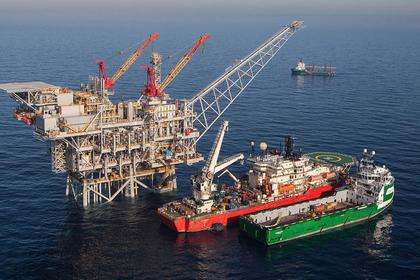
2015, August, 4, 18:35:00
NOBLE ENERGY LOSS $ (131) MLN
Noble Energy, Inc. (NYSE:NBL) announced today a second quarter 2015 net loss of $109 million, or $0.28 per diluted share. Excluding the impact of certain items which would typically not be considered by analysts in published earnings estimates, second quarter 2015 adjusted income was $101 million, or $0.26 per diluted share. Discretionary cash flow was $461 million and net cash provided by operating activities was $424 million. Capital expenditures for the second quarter of 2015 totaled $799 million.
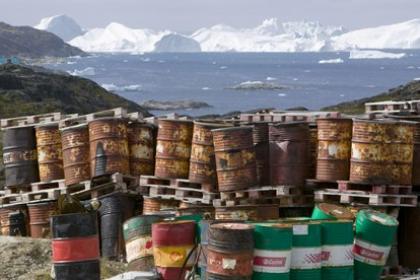
2015, April, 30, 18:50:00
U.S. INDUSTRY GROWTH
U.S. energy consumption has slowed recently and is not anticipated to return to growth levels seen in the second half of the 20th century. EIA's Reference case projections in the Annual Energy Outlook 2015 (AEO2015) show that domestic consumption is expected to grow at a modest 0.3% per year through 2040, less than half the rate of population growth. Energy used in homes is essentially flat, and transportation consumption will decline slightly, meaning that energy consumption growth will be concentrated in U.S. businesses and industries.

2015, April, 30, 18:45:00
U.S. ECONOMY BRAKED
U.S. economic growth braked more sharply than expected in the first quarter as harsh weather dampened consumer spending and energy companies struggling with low prices slashed spending, but there are signs activity is picking up.
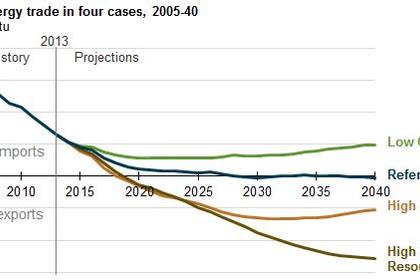
2015, April, 16, 20:15:00
U.S. IMPORT ELIMINATION
U.S. show the potential to eliminate net energy imports sometime between 2020 and 2030. This reflects changes in both supply and demand, as continued growth in oil and natural gas production and the use of renewables combine with demand-side efficiencies to moderate demand growth. The United States has been a net importer of energy since the 1950s.

2015, March, 9, 19:15:00
THE NEW RUSSIAN EMPIRE
Ex-BP boss aims to build major energy industry player from scratch
Lord Browne heads new oligarch-backed $10bn fund L1 which is buying up energy industry assets while price of oil is low

2015, March, 3, 21:00:00
NEW RUSSIAN EMPIRE
Russian billionaire Mikhail Fridman began building an international energy company on Monday, closing a €5.1 billion ($5.7 billion) purchase of German utility RWE AG ’s oil-and-gas business over British opposition that could force the sale of the unit’s U.K. assets.

2015, February, 28, 19:15:00
BP & RUSSIA: $10 BLN
John Browne, the former chief executive of BP, will take charge of a $10 billion oil and gas venture backed by Russian billionaire Mikhail Fridman to help it expand internationally through partnerships and acquisitions, the Financial Times reported.
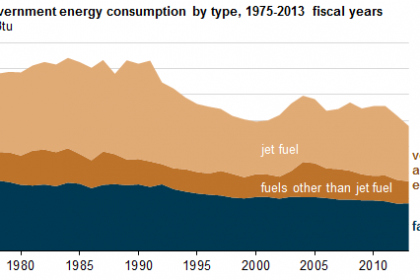
2015, February, 7, 16:45:00
U.S. GOVERNMENT ENERGY CONSUMPTION
The U.S. federal government, with thousands of facilities and vehicles in locations across the United States and abroad, is one of the largest energy consumers in the world, but that consumption is declining.
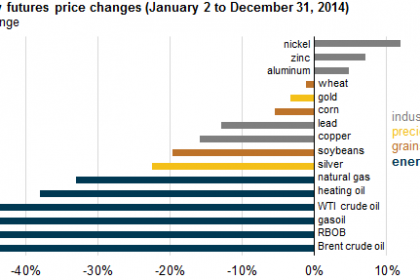
2015, January, 6, 13:25:00
ENERGY PRICE DECLINES
Two benchmark crude oils, West Texas Intermediate (WTI) and Brent, make up about 67% of the weighting in the S&P GSCI energy index. Petroleum-based products (gasoline, heating oil, and gasoil) together comprise another 29% of the S&P GSCI energy index, and because prices for these products generally follow crude oil prices, the index tends to follow the major price movements in the crude oil market.

2014, November, 16, 12:40:00
GLOBAL ENERGY SISTEM IS CHANGED
Global energy demand is set to grow by 37% by 2040 in our central scenario, but the development path for a growing world population and economy is less energy-intensive than it used to be.





